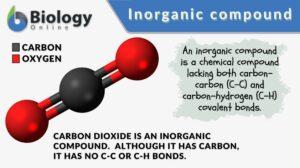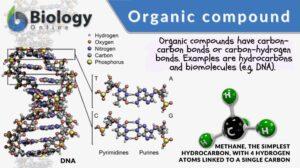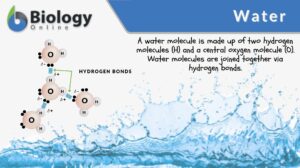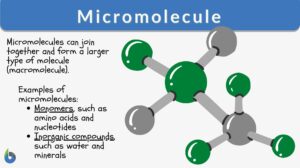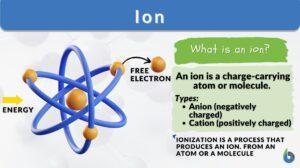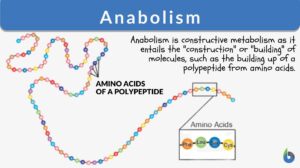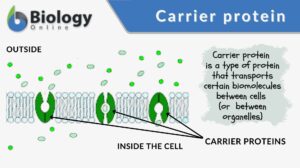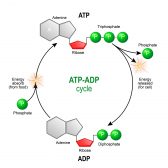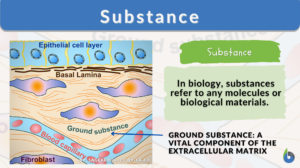Search Results for: inorganic molecule
Inorganic molecule
Definition noun, plural: inorganic molecules (1) A molecule not consisting of carbon atoms. (2) Any molecule that is not... Read More
Inorganic compound
Inorganic Compound Definition An inorganic compound is a chemical compound lacking both carbon-carbon (C-C) and... Read More
Primary productivity
Planet Earth is home to different types of life forms ranging from microscopic bacteria to giant whales and elephants. To... Read More
Anaerobic respiration
Anaerobic Respiration Definition What is anaerobic respiration? Anaerobic (cellular) respiration is a respiratory process... Read More
Hydrogen bond
Definition noun plural: hydrogen bonds A type of chemical bond that is formed when the slightly positive hydrogen atom of... Read More
Krebs cycle
Krebs cycle, also known as the citric acid cycle or tricarboxylic acid (TCA) cycle, is a fundamental metabolic pathway that... Read More
Cellular respiration
Cellular Respiration Definition What is cellular respiration in simple terms? Cellular respiration can be defined simply as... Read More
Dehydration reaction
What is dehydration synthesis? A dehydration reaction is a form of biochemical reaction wherein a water molecule is lost or... Read More
Catabolism
Catabolism Definition Catabolism is the branch of the metabolic process that breaks down complex, big molecules into... Read More
Photosynthesis
Photosynthesis is a physio-chemical process carried out by photo-auto-lithotrophs by converting light energy into chemical... Read More
Light-independent reaction
The process of photosynthesis is a biological procedure in which plants produce oxygen and energy (sugar) by using light... Read More
Organic compound
Organic Compound Definition An organic compound is a compound that, in general, contains carbon covalently bound to other... Read More
Light-dependent reaction
Many organisms, such as green plants, convert light energy into chemical energy through the mechanism of photosynthesis. In... Read More
Organic molecule
Definition noun 1. A molecule that is normally found in or produced by living systems. 2. A molecule that typically... Read More
Calvin cycle
Calvin Cycle Definition The Calvin cycle, also known as the Calvin Benson cycle or the dark reactions, is a series of... Read More
Phosphorylation
Phosphorylation Definition We can define phosphorylation as a biochemical process in which a phosphate molecule is added to... Read More
Micromolecule
Micromolecules Definition How to define micromolecule? Micromolecules are relatively small molecules that are combined... Read More
Fermentation
Fermentation Definition What is fermentation? Fermentation is the breaking down of sugar molecules into simpler compounds... Read More
Glycolysis
What is Glycolysis and Why is it Important? Glycolysis is a metabolic pathway by which the 6-carbon molecule of glucose is... Read More
Metabolism
Metabolism Definition What is metabolism in the body? Metabolism encompasses the various biochemical processes, reactions,... Read More
Chlorophyll
Why are most plants green? Have you ever had the same question? Perhaps, you’ve been told that the plants are green... Read More
Chemiosmosis
Chemiosmosis Definition What is chemiosmosis? In biology, chemiosmosis refers to the process of moving ions (e.g. protons)... Read More
Carrier protein
Carrier protein is a type of cell membrane protein involved in facilitated diffusion and active transport of substances out... Read More
Carbon fixation
Carbon Fixation Definition We know that the earth contains many elements. The periodic table shows us just how many... Read More
ATP synthase
Definition noun, plural: ATP synthases An enzyme that catalyzes the formation of ATP from the phosphorylation of ADP with... Read More
Carbohydrate
Carbohydrate Definition A biomolecule refers to any molecule that is produced by living organisms. As such, most of them... Read More
ATP & ADP – Biological Energy
ATP stands for adenosine triphosphate, and is the energy used by an organism in its daily operations. It consists of an... Read More

